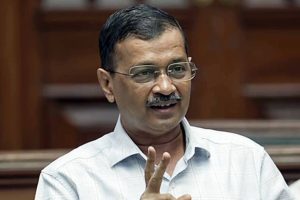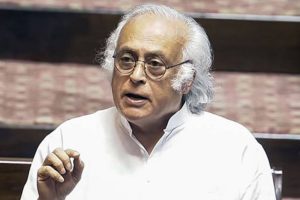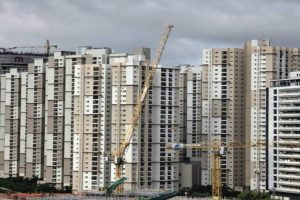With the Union Budget for 2024-25 set to be tabled on July 23, the real estate sector is pinning renewed hope on the Modi 3.0 regime. Expectations are high for tax reliefs and other sentiment boosters.
The future of the overall real estate industry, a key employment provider, also depends on infrastructure improvements to support and enhance urban living standards.
“Will the government finally decide to give in to the long-standing demand for industry status for the entire housing sector? Will it take ‘real’ measures to revive the affordable housing segment, which has been on a steady decline since the pandemic?” questioned real estate consultancy firm Anarock as part of its wish-list ahead of the much-awaited Budget presentation.
According to Anarock, the Indian housing sector has remained upbeat in 2024 so far, with housing sales and new launches reaching new peaks in the top seven cities. Sales hit an all-time high of about 4.93 lakh units in 2023-24, while 4.47 lakh units were launched.
Anuj Puri, Chairman of ANAROCK Group, said, “However, this momentum must continue in the future too – and the current growth trajectory is skewed towards mid-range and premium housing.”
“Considering the specific housing needs of India’s lower-income groups, this momentum cannot ride solely on higher-priced homes while affordable housing continues to languish,” Puri noted.
As per ANAROCK Research, the sales share of affordable housing reduced significantly after COVID-19 – from over 26 percent in 2022 and over 38 percent in 2019 to approximately 20 percent in Q1 2024. Due to low demand, this segment’s share of the overall housing supply in the top seven cities also fell to 18 percent in Q1 2024, from nearly 40 percent in 2019.
“Many interest stimulants previously extended to buyers and developers of affordable housing have expired in the last two years. This important segment must be revived with high-impact measures like tax breaks – for developers to focus more on affordable housing, and for buyers to improve affordability,” said Puri.
Among other measures to reignite the affordable housing segment, Anarock suggested that the Credit-linked Subsidy Scheme under PMAY should be revived. This scheme for the economically weaker section and low-income group, which expired in 2022, should be reinstated to incentivize first-time buyers of affordable homes across cities.
Anarock also sought the reintroduction of a 100 percent tax holiday for affordable housing developers. To boost supply and incentivize developers to build more affordable housing, the government can reintroduce the ‘100% Tax Holiday’ benefit they previously enjoyed under section 80-IBA in the Finance Act, 2016. This section provided major tax relief on the profits earned from developing and building affordable housing projects.
Further, Anarock asked for tweaking the definition of affordable housing criteria to widen additional deduction benefits to more buyers.
According to the Ministry of Housing and Urban Poverty Alleviation, affordable housing is defined based on property size, price, and buyers’ income. For instance, affordable housing is a house or flat with a carpet area up to 90 sq. m. in non-metropolitan cities and towns, and 60 sq. m. in major cities, valued up to INR 45 lakh for both. The central bank’s definition, on the other hand, is based on the loans given by banks to people for building a house or buying apartments.
Anarock said the government must seriously reconsider revising the pricing of homes within the affordable housing budget, taking into consideration city-specific market dynamics. As per the current definition, the size of units at 60 sq. m. carpet area is appropriate. However, prices of units (up to Rs 45 lakh) are not viable across most cities, Anarock said.
For instance, it said for a city like Mumbai, a Rs 45 lakh budget is meaningless.
“It would need to be increased to at least INR 85 lakh. In other top cities, the budget should be increased to at least INR 60-65 lakh. With such price revisions, more homes would qualify for the affordable price tag, so more buyers can avail of benefits,” Anarock suggested.
Further, granting infrastructure status to the real estate sector has been a long-standing demand. Anarock once again made a similar demand, asserting that this move would enable developers to access funds at lower interest rates and avail of other financial benefits. Infrastructure status would also streamline regulatory processes and improve overall project viability.
The interim budget, tabled on February 1, addressed the financial needs of the intervening period until a new government was formed after the Lok Sabha polls, after which a full budget was supposed to be presented by the new government in July.
With this upcoming Budget presentation on July 23, Finance Minister Nirmala Sitharaman will surpass the record set by former Prime Minister Morarji Desai, who as finance minister, presented five annual budgets and one interim budget between 1959 and 1964. Sitharaman’s upcoming Budget speech will be her sixth.
The government recently announced the dates of the budget session of Parliament, which will start on July 22 and conclude on August 12.





